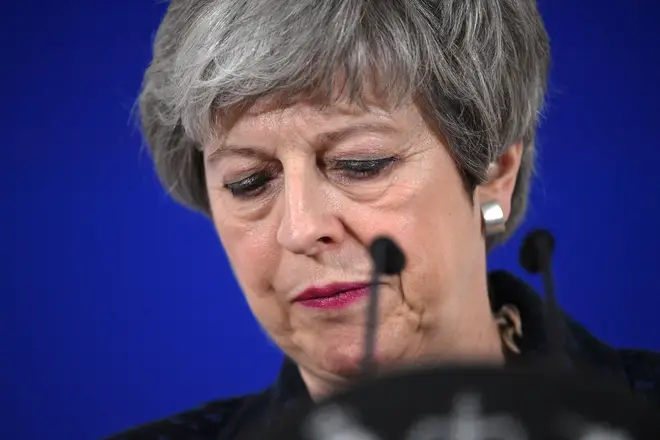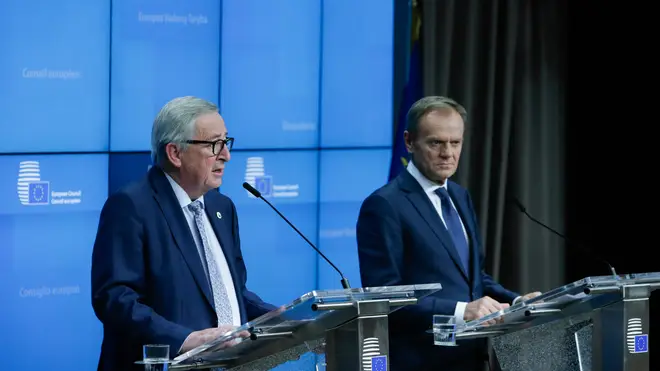
Vanessa Feltz 3pm - 6pm
21 March 2019, 23:37 | Updated: 26 March 2019, 09:46

The European Union have agreed a conditional extension of Article 50 to May 22nd, provided the Prime Minister can get her deal passed through Parliament.
European Union leaders have agreed to delay Brexit to May 22nd on the condition that Theresa May's Withdrawal Agreement is passed by MPs in the House of Commons.
However if the deal is rejected for a third time, then the extension will only last until April 12th.
In a press conference, President of the European Council Donald Tusk outlined that the UK government will have to choose between the Prime Minister's Brexit deal, no-deal Brexit, a longer extension, or revoking Article 50 altogether.
"The 12th of April is key date in terms of the UK deciding whether to hold European Parliament elections", he said.
"If it has not decided to do so then, the possibly of a longer extension will automatically become impossible."
- Brexit Delay: Why Are There Two Extension Dates?

Prime Minister Theresa May said in her own press conference that there was now a "clear choice" for MPs who could vote on her exit deal next week.
"There's now that different date of 12 April, I believe this is important, it gives us the opportunity, MPs next week, to look at the choices that clearly face them," she said.
"We can leave with a deal in an orderly manner, have that extension until 22 May.
"Or, if we don't get that deal through, then before the 12 April we have to come forward with another plan and if that plan means a further extension, it means standing in those European parliamentary elections."
But Mrs May dismissed calls to stop Brexit after a petition to revoke Article 50 and remain in the EU reached more than 2 million signatures.
"If you look back at what happened in the referendum, we saw the biggest democratic exercise in our history," she said.
"And there was a clear result that we should leave.
"I think that it's important if we want to show that we can be trusted as politicians to respect a decision that we gave to the people.
"We didn't say, 'tell us what you think and we'll think about it'.
"We said, 'here's the vote, what is your decision and we will deliver on that'."